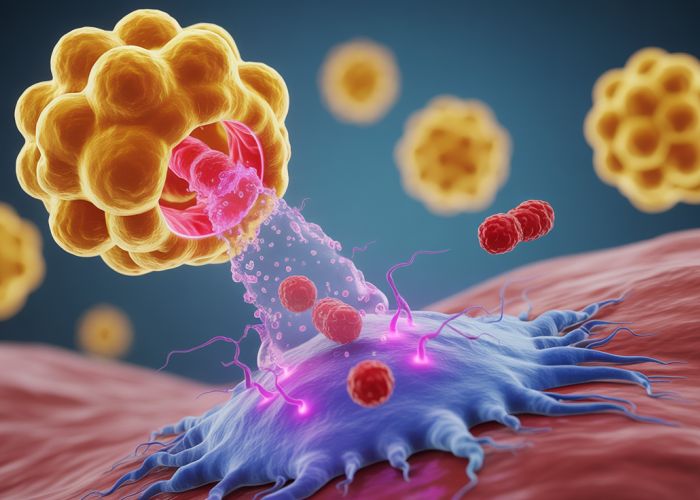B lymphocytes, a key component of the adaptive immune system, differentiate into plasma cells. Plasma cells, specialized immune cells, represent the answer to what secretes antibodies. These Y-shaped glycoproteins neutralize pathogens and activate other immune components, critical to understanding adaptive immunity. Their impact has been extensively studied by institutions like the National Institutes of Health (NIH).

Antibodies: The Body’s Secret Weapon Explained!
Understanding how our bodies defend themselves against disease is fascinating. A key component of this defense system is antibodies. This article will delve into what antibodies are, how they work, and, importantly, what secretes antibodies.
What are Antibodies?
Antibodies, also known as immunoglobulins (Ig), are Y-shaped proteins produced by the immune system to identify and neutralize foreign objects like bacteria, viruses, and toxins. Think of them as guided missiles, each designed to target a specific threat.
- Structure: The Y-shape consists of two heavy chains and two light chains. The tips of the "Y" (the variable regions) are what bind to specific antigens (the targets).
- Function: Once an antibody binds to an antigen, it can:
- Neutralize the antigen, preventing it from infecting cells.
- Mark the antigen for destruction by other immune cells (like macrophages).
- Activate the complement system, a cascade of proteins that helps destroy pathogens.
What Secretes Antibodies: The Role of B Cells
The crucial answer to the question of what secretes antibodies lies within a type of white blood cell called B lymphocytes, or B cells.
B Cell Maturation and Activation
B cells develop in the bone marrow. Once mature, they circulate in the blood and lymphatic system, waiting to encounter their specific antigen.
- Antigen Recognition: Each B cell has a unique antibody on its surface. When that antibody binds to its corresponding antigen, the B cell becomes activated.
- Clonal Selection and Expansion: The activated B cell undergoes clonal selection, meaning it selects itself for replication. It divides rapidly, creating a large population of identical B cells all capable of producing the same antibody. This is called clonal expansion.
Plasma Cells: Antibody Factories
Most of the newly created B cells differentiate into plasma cells. These are specialized cells whose primary function is to secrete large quantities of antibodies. They are, in essence, antibody factories.
- Antibody Secretion: Plasma cells contain an extensive endoplasmic reticulum and Golgi apparatus, organelles responsible for protein synthesis and modification. This allows them to efficiently produce and secrete antibodies into the bloodstream and lymphatic system.
- Lifespan: Plasma cells generally have a short lifespan (days to weeks), continuously pumping out antibodies during an active infection.
Memory B Cells: Long-Term Immunity
A portion of the activated B cells become memory B cells. These cells do not secrete antibodies immediately but remain in the body for a long time (potentially years or even decades).
- Rapid Response: If the same antigen is encountered again in the future, memory B cells can quickly differentiate into plasma cells and produce antibodies much faster than the initial response. This is the basis of immunological memory and how vaccines work.
Different Types of Antibodies (Isotypes)
There are several different classes, or isotypes, of antibodies, each with slightly different functions and locations in the body.
| Isotype | Location | Function |
|---|---|---|
| IgG | Blood, tissue fluids | Provides long-term immunity; neutralizes toxins; activates complement; crosses the placenta to protect the fetus. |
| IgM | Blood | First antibody produced during an infection; activates complement. |
| IgA | Mucosal surfaces (e.g., gut, respiratory tract) | Protects mucosal surfaces from infection; found in breast milk. |
| IgE | Bound to mast cells and basophils | Involved in allergic reactions; defends against parasitic worms. |
| IgD | On the surface of B cells | Acts as an antigen receptor on B cells, playing a role in B cell activation. |
Antibody Production in Disease
Antibody production is vital for combating infections, but it can also be dysregulated in certain diseases.
- Autoimmune Diseases: In autoimmune diseases, the body mistakenly produces antibodies against its own tissues. For example, in rheumatoid arthritis, antibodies attack the joints.
- Immunodeficiency Disorders: In immunodeficiency disorders, the body may not be able to produce enough antibodies, making individuals susceptible to infections.
- Monoclonal Gammopathies: These disorders involve the overproduction of a single type of antibody, which can lead to various health problems.
Antibodies: Your Questions Answered
Here are some common questions about antibodies and how they protect your body.
What exactly are antibodies and what do they do?
Antibodies, also known as immunoglobulins, are proteins produced by the immune system. They recognize and bind to specific foreign substances, like bacteria and viruses, called antigens. This binding neutralizes the threat or marks it for destruction by other immune cells.
How do antibodies protect me from getting sick?
Antibodies prevent illness by neutralizing pathogens, preventing them from infecting cells. They can also activate other parts of the immune system to eliminate the threat. By remembering previous infections, antibodies provide long-term immunity.
What secretes antibodies and triggers their production?
Plasma cells, which are a type of differentiated B lymphocyte (a white blood cell), are what secretes antibodies. The production of antibodies is triggered when the immune system encounters a foreign antigen. This prompts the B cells to mature into plasma cells and begin antibody production.
Are there different types of antibodies?
Yes, there are several types of antibodies (IgG, IgM, IgA, IgE, IgD), each with a specific role. IgG is the most abundant and provides long-term immunity. IgM is the first antibody produced during an infection. IgA protects mucosal surfaces. IgE is involved in allergic reactions. IgD’s role is less understood.
So, now you know the secret behind our body’s secret weapon. Understanding what secretes antibodies is key to grasping how our immune system protects us. Pretty cool, right?